- Home
- H A CULLEY
The Path to the Throne Page 6
The Path to the Throne Read online
Page 6
Robert of Annandale snorted. ‘I wouldn’t trust Edward of England. Having subdued Wales, there’s nothing that man would like more than to add Scotland to his empire.’
‘But he would only be acting as arbiter to ensure that the selection of the next King of Scots is fair,’ the bishop pointed out.
‘Then he’ll select Balliol,’ the Bruce’s father interjected. ‘He’s weak and it would suit the English just fine to have a weakling ruling north of the border. Don’t forget how many times strong kings like David, William the Lion and both Alexanders invaded the North of England in the past.’
The meeting broke up without making any decisions other than to ask James Stewart and Robert Wishart to oppose the appointment of Edward Longshanks as arbiter of the Great Cause, as the competition for the crown was now being called.
Robert Bruce left the council chamber with his mind in a whirl. At sixteen he was unfamiliar with the political intricacies of the matters that the others dealt with on a regular basis.
~#~
Edward Longshanks arrived at Norham Castle on the south bank of the River Tweed, which marked the border between England and Scotland in the East Marches, just as dusk was falling on the sixth of May 1291 at the invitation of the four Guardians of Scotland. The castle belonged to the Prince-Bishop of Durham who had responsibility for the border in this area. It stood high above the river, its massive six storey stone keep defending a ford over the river. There was no bridge at Berwick, which sat on the Scottish side of the estuary, and Norham was the nearest crossing point to the town.
Berwick had grown in importance during the thirteen century so that it was now Scotland’s major port, a thriving commercial centre and the location of the Scottish mint. The town has been the Guardians first suggestion as a meeting point to discuss the Great Cause, but Edward felt that the Scots would be less comfortable on English soil and had therefore chosen Norham Castle. It was on the English bank of the Tweed but, by being only yards away from their own country, the Scots could hardly object.
Apart from the Guardians, all those claiming the vacant crown, known collectively as the Competitors, had gathered to hear how the matter was to be judged by Edward.
‘My greatest concern,’ the King began, ‘is to ensure that this dispute over who rules in Scotland doesn’t escalate into civil war, and I know that it is your greatest wish also.’
He looked around the room, his penetrating eyes locking with those of every single other man in the room before moving on. Edward was a large and impressive man, at least a foot taller than the average, and he intimidated nearly all of those with whom he came in contact. From where he stood behind his father and grandfather Robert felt those eyes bore into him. As Edward’s gaze swept on Robert felt that his privacy had been invaded and Edward had laid bare his innermost thoughts. It had been a weird and unsettling experience, but Robert told himself that the King couldn’t really read his mind. However, he had to admit that making someone feel that he could do so must be a very useful gift.
‘I therefore suggest that all the Royal Castles in Scotland are handed over to me before we start the process. I will then hand them back to your new king. That will dissuade any dissident factions from trying to seize power in support of an unsuccessful candidate.’ He smiled and looked around for agreement.
‘Very clever,’ thought Robert. ‘With Stirling, Edinburgh, Roxburgh, Berwick and Jedburgh in his possession Edward would control the whole country south of the Highland Line. He seemed to recall being taught that when William the Lion had been captured in 1174, Henry Plantagenet, Edward’s great-grandfather, had demanded these very same castles be handed over as part of the treaty for King William’s release. King Henry had also made William swear fealty to him as his overlord. It seemed very much to young Robert that there was a sense of déjà vu here.
After a great deal of heated argument, agreement was reached three days later. A council of one hundred and five auditors would hear the cases put forward by the fourteen competitors for the crown. These auditors would be made up of Edward himself as president and twenty four chosen by him. The two claimants with the strongest cases — Bruce and Balliol — would be allowed to appoint forty each. Whilst this seemed to be very fair to both Balliol and Bruce on the face of it, in reality their chosen auditors cancelled each other out, leaving King Edward with control.
‘It’s a forgone conclusion,’ Robert told Gavin as the latter dressed him for yet another dinner with the Bruce-nominated supporters to review the week’s progress, or lack of it. ‘Edward wants Balliol because he is spineless, has all his estates in England and so is already a vassal of Edward’s and his accession would keep Scotland divided because few respect him or want him as king.’
In the past year Robert’s determination to keep Gavin at a proper distance, as befitted their respective stations in life, had withered and died and now his squire was his greatest confident.
‘But you are also dependent on the English King to some extent are you not?’ Gavin asked tactfully. He knew full well that the Bruces had vast estates in Essex, Durham and Yorkshire.
‘Hmmm, yes; it does make it difficult as I suspect that, as a family, we derive more of our income from our English estates than we do from our Scottish ones. It’s not the same for you Stewarts. The senior members of the FitzAlans stayed in England when the third son, Walter FitzAlan, a landless knight came north to serve King David and became his steward. So all his lands are up here in Renfrewshire.’
Gavin knew vaguely about his family history but he hadn’t appreciated that the FitzAlan Earls of Arundel were distant relations.
‘So we really can’t afford to upset Edward. It would be a disaster for us if he decided to take our English lands away. I suppose we will just have to tread very carefully.’ Robert realised that he had probably opened up to Gavin about his family’s circumstances much more than was wise and changed the subject.
~#~
On the seventeenth November 1292 Edward summoned the nobility of Scotland and the parliament of England to meet in the great hall of Berwick castle to hear the judgment of the auditors. He announced that John Balliol was King of Scots by right of primogeniture with his son, Edward, becoming heir designate.
‘This decision has the support of the majority of Scots nobles, even a number of those appointed as auditors by Robert de Brus of Annandale acknowledge King John’s prior claim,’ he proclaimed loudly. As a sop to Robert de Brus he made his son, the Earl of Carrick, Sheriff of Cumbria.
Two weeks later John Balliol was crowned as King of Scots at Scone and received the homage of the Scots nobles attending. However, this did not include any of the Bruces, who had stayed away along with most of their supporters. It didn’t bode well for the future unity of the kingdom. What was even less encouraging was Edward’s insistence that John Balliol paid homage to him as Lord Paramount of Scotland, thus making Scotland a client kingdom of England.
Needless to say, none of the five royal castles were handed over to John by Edward.
‘Robert sit down, I’m afraid I have some bad news for you.’ His father looked drained and defeated. Robert had just ridden back to Turnberry from Lochmaben where his grandfather was ill.
‘What is it, father?’ He was immediately concerned at the look on the other man’s face. ‘It can’t be bad news about Grandfather, he wasn’t too bad when I left him.’
‘No, it’s not him, it’s your mother.’ His father got up from the chair by the fire and started to pace to and fro. ‘I know that the two of you have never been close.’
‘She never seemed to take much interest in me, only in my younger siblings.’
‘Before you say something you may regret, listen to me. Robert, your mother is dead. It was very sudden. She complained of a pain in her chest yesterday and an hour later she died.’
Robert didn’t know what to feel. He had been scared of his mother when he was a child and they had never enjoyed a close relationship; he certai
nly hadn’t loved her, or even been fond of her. If they had spoken when he was young, it had usually turned into an argument. They were both strong willed and just seemed to annoy each other. He supposed he should feel sorrow, but he just felt numb. Someone who had always been there just wasn’t anymore. Then he realised that his father had been Earl of Carrick because he was married to her. He was tempted to ask him what happened now to the title and her lands but he felt that it would seem callous and insensitive to ask him so soon after learning of her death. Instead he asked about the funeral.
‘It’s to be held tomorrow. If you want to say your farewells, she is laid out in the chapel.’ Robert nodded and turned to go when his father’s next words stopped him dead in his tracks.
‘Robert, now that your mother is dead her title passes to you as her eldest son. You are now the Earl of Carrick.’
Robert had suspected this might be the case but it still came as a shock when he heard his father say it.
‘What about you? What will you do?’
‘I have no intention of bending the knee to John Balliol so I shall retire to my estates in England.’
‘What about Annandale? Grandfather is quite ill and he’s eighty two now. Won’t you have to pay homage to Balliol when you inherit?
‘No, because my father hasn’t named me as his heir. He shares my views about our so-called King John.’ He spat into the fire to show what he thought of the new King of Scots. ‘He has no more intention of swearing fealty to him than I do. He has asked for permission to resign the Lordship of Annandale to you. All he asks is that he be allowed to end his days at Lochmaben.’
It had all come as a tremendous shock to the eighteen year-old Robert. Two years ago he had been a humble squire; now he was Earl of Carrick and was soon to be Lord of Annandale as well, it seemed. His mind was in a whirl and he was convinced that soon he would wake and discover that it had all been a nightmare; but it wasn’t and he soon learned to face reality.
He supposed that he would have to travel to wherever Balliol’s court was and do him homage for Carrick and Annandale, but that could wait. He would have to spend some time at both Turnberry and Lochmaben to get to grips with his new responsibilities. By the time that he returned to his chamber to change for dinner he had begun to accept what had happened, but he was still startled when Gavin addressed him as ‘my lord’ rather than as ‘Sir Robert.’
Chapter Four – The Reign of King John – 1292 to 1295
William Wallace had also been forced to adjust to a change in circumstances. His father had died in 1291 and, at seventeen, he was still a minor. James Stewart, his father’s overlord, had decided to make him his ward and William had therefore journeyed to Edinburgh to join the High Steward’s household. His manor would be added to those managed by Lord James’ steward in Renfrew on his behalf. This had exasperated William as he knew that he would have made a better job of it than some absentee steward who would leave everything to the bailie. Although William had known the man all his life, he wasn’t sure that he entirely trusted the bailie, despite the fact that he was the father of Mary and the twins. He suspected that some coins stuck to his fingers instead of finding their way into the lord of the manor’s coffers.
The messenger from the High Steward had instructed him to make all haste to Edinburgh and had told him to bring a body servant with him. He was reluctant to leave the glen where he had grown up and decided that he needed a friend rather than a servant by his side. The obvious choice was one of the Cowan twins but, much as they wanted to go with William, they refused to be separated; so in the end he decided to take both of them.
His farewell to Mary Cowan was tearful and prolonged. They had been lovers for four years and William desperately wanted her as his wife. He had sent the messenger back to Edinburgh with a request that he be allowed to marry. He cursed the fact that he hadn’t ask his father whilst he was still alive. He might have said no but, equally he might have agreed. Now he was a ward of James Stewart instead and needed his permission as well as that of Mary’s father, though he knew the latter wasn’t likely to be a problem.
The reply was curt and to the point. William was now heir to a manor and must marry someone of his own class. The High Steward had already identified a suitable heiress who would add another manor to William’s lands. The girl was only six so their marriage would have to wait, but he had already made arrangements for their betrothal.
William was incandescent with rage and on the point of sending an intemperate reply telling his guardian what he could do with his child bride and refusing to leave Ellerslie when the steward arrived from Renfrew. He managed to calm William down and persuade him that betrothal was preferable to disinheritance and penury; after all, betrothal was not marriage and could be broken later. William would become an adult long before the girl was old enough to wed.
The following morning he went to collect the two Cowan boys, now fourteen, and to say goodbye to their sister. The boys had to wait impatiently for two hours whilst William and Mary went for a walk along the river bank and made love one last time. It wasn’t the right time of the month to do so without risking pregnancy but Mary didn’t care and lied about it to William. As they walked back to the hall their pace got slower and slower until they stopped and kissed passionately in full view of the twins and several villagers, including Mary’s parents. Her father ran over and hauled the girl away, berating her for shaming their family by such a wanton display of lust, but he also gave William an apologetic look over his shoulder.
Ten minutes later William, Malcolm and Findlay rode out of the glen.
~#~
Robert, Earl of Carrick, halted before the throne in the great hall of Stirling Castle. Edward had refrained from handing it, and the other royal castles he had occupied during the period before John Balliol had been crowned, back until recently. Balliol had demonstrated his own power by moving his court there from the Abbey of the Holy Rood in Edinburgh as soon as he could. Apart from anything else it drew attention away from the fact that Edinburgh Castle was still in English hands.
The earl looked around the room slowly, avoiding making his obeisance to King John for as long as possible. He nodded towards the Bishop of Glasgow and the High Steward and then noticed the large youth standing near him. He looked to be about the same age as Robert but he stood a foot taller and had wide shoulders. Apart from Edward Longshanks, who was about the same size, he was the tallest man he had ever seen. Beside him, their heads barely reaching the middle of his chest, stood two twins with curly hair which was a vivid shade of red. They were an odd trio and stood out amongst the rest of the court, especially as the two younger boys had mischievous grins on their faces and looked at him boldly.
‘Sir Robert, we are pleased to see you,’ the King of Scots called across the room, impatient at being kept waiting in such a blatant manner.
‘My lord king, forgive me. I was admiring the splendour of your court.’ Robert replied with a slight nod of his head instead of the usual deep bow. He had chosen this rather antiquated manner of addressing Balliol in preference to the more normal ‘your Grace’ or ‘Sire’ to emphasise the fact that he didn’t agree with King Edward’s adjudication. He had even paused slightly between saying ‘lord’ and ‘king’. He was also annoyed at the way that Balliol had addressed him as ‘Sir Robert’, ignoring his elevation to the earldom of Carrick and the lordship of Annandale.
‘Why are you here, Sir Robert?’ John Balliol asked with a slight sneer.
Robert was a little taken aback. ‘Why, at your request; to pay you homage for my Earldom of Carrick and for Annandale.’
‘Oh, what a shame! When you didn’t appear within a reasonable time of my order for you to attend me, I assumed that, like your father and grandfather, you couldn’t bring yourself to become my vassal. I very much fear that I have given your earldom and your lordship of Annandale to another, who had proved his loyalty to me.’
‘Given Carrick and Annandale to another
?’ Robert bellowed in his rage. ‘Who would dare to even think of usurping my inheritance?’
‘You know Sir John Comyn, Lord of Badenoch, I think? And now Earl of Carrick as well.’ John’s sneer was now one of triumph. He obviously thought that, without his Scottish lands, Robert Bruce would be powerless.
Robert turned his baleful glare on John Comyn who was standing near the king and smiling smugly.
‘You’re going to regret this, Comyn.’ With that Robert turned on his heel and left the great hall. Within the hour he and his men had left Stirling before Balliol could think of having him arrested. He headed south, making for York, where he knew King Edward to be.
~#~
William Wallace watched Robert leave with a feeling of satisfaction. Although he was now in the High Steward’s household he instinctively held the nobles of Scotland in low regard. Most of them had estates in England as well as Scotland and therefore wouldn’t put the interests of the native born Scots, who he thought of as his people, first. Despite his Norman descent, he always thought of himself as a Scot. In truth he thought that he was just as Scottish as Malcolm and Findlay were.
He therefore took pleasure in seeing someone he thought of an Englishman deprived of his Scottish lands, especially as they had been given to the Red Comyn, who was descended from King Duncan III. Although Robert had vaguely remembered him from their meeting five years ago, William had no recollection of the young squire who had come to Ellerslie at all.
He and the twins had ridden to Edinburgh three weeks ago only to find that they had missed the court by two days. They had no option but to set out again for Stirling. Once they arrived it had taken William several more days to get to see James Stewart. During that time they had slept in the furthermost, and therefore the coldest, corner of the great hall and had to fight the scullions and pot boys for the scraps of food left over when everyone else had eaten. However, thanks to William’s size and strength, the kitchen boys soon learned to wait until the three had taken what they wanted before they got stuck in.

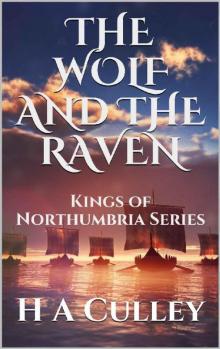 The Wolf and the Raven
The Wolf and the Raven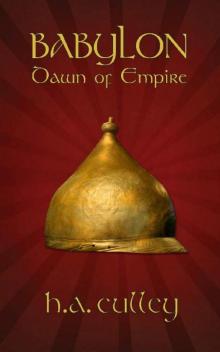 Dawn of Empire
Dawn of Empire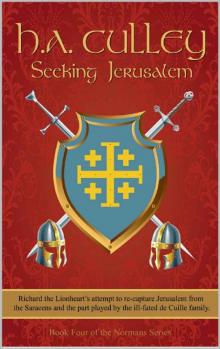 Seeking Jerusalem
Seeking Jerusalem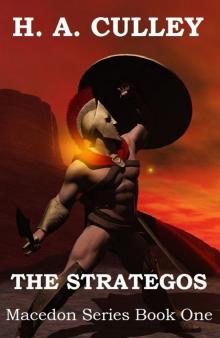 The Strategos
The Strategos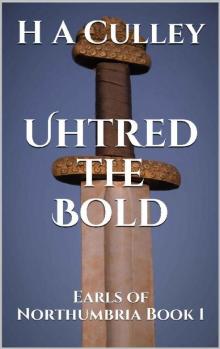 Uhtred the Bold
Uhtred the Bold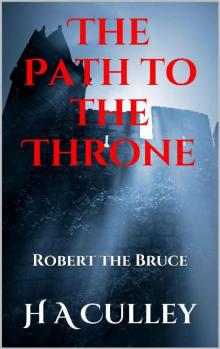 The Path to the Throne
The Path to the Throne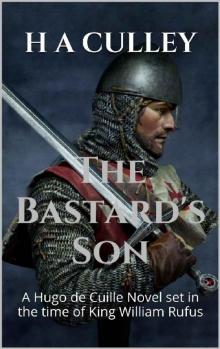 The Bastard's Son
The Bastard's Son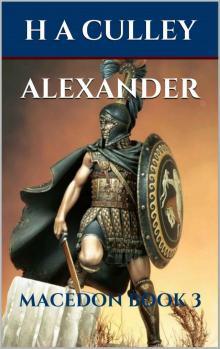 Alexander
Alexander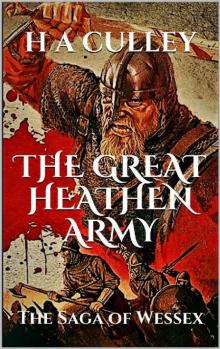 The Great Heathen Army
The Great Heathen Army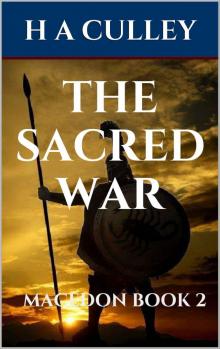 The Sacred War
The Sacred War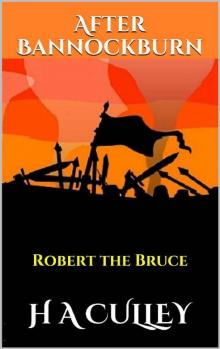 After Bannockburn
After Bannockburn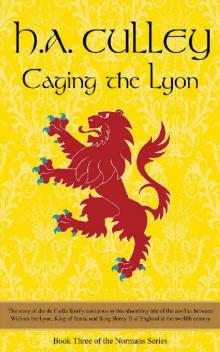 Caging the Lyon
Caging the Lyon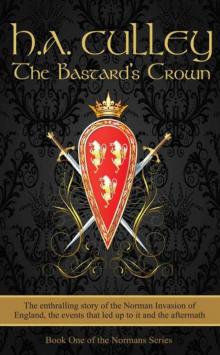 The Bastard's Crown
The Bastard's Crown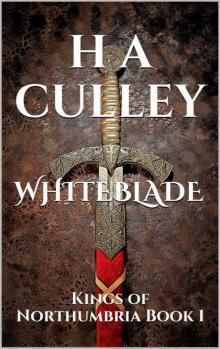 WHITEBLADE
WHITEBLADE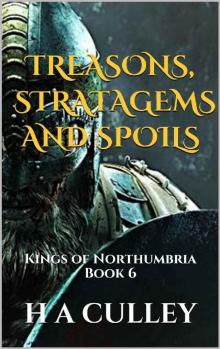 TREASONS, STRATAGEMS AND SPOILS: Kings of Northumbria Book 6
TREASONS, STRATAGEMS AND SPOILS: Kings of Northumbria Book 6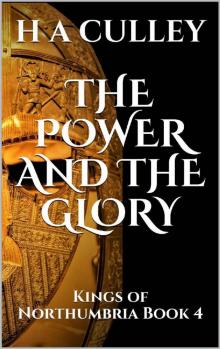 THE POWER AND THE GLORY: Kings of Northumbria Book 4
THE POWER AND THE GLORY: Kings of Northumbria Book 4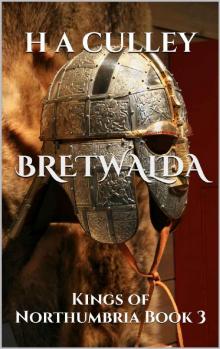 BRETWALDA: Kings of Northumbria Book 3
BRETWALDA: Kings of Northumbria Book 3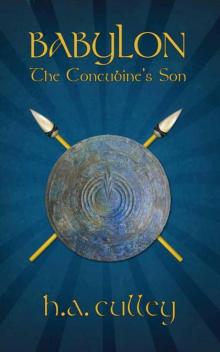 The Concubine's Son
The Concubine's Son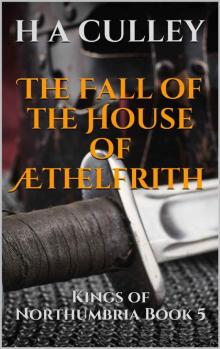 The Fall of the House of Æthelfrith: Kings of Northumbria Book 5
The Fall of the House of Æthelfrith: Kings of Northumbria Book 5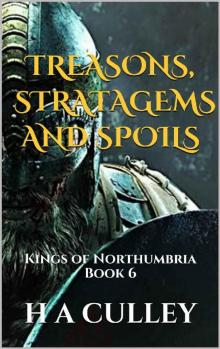 TREASONS, STRATAGEMS AND SPOILS
TREASONS, STRATAGEMS AND SPOILS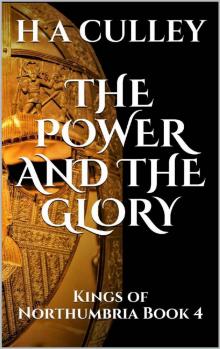 THE POWER AND THE GLORY
THE POWER AND THE GLORY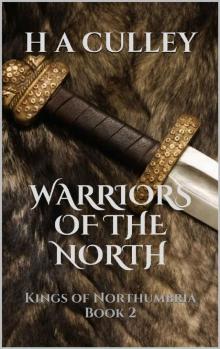 WARRIORS OF THE NORTH
WARRIORS OF THE NORTH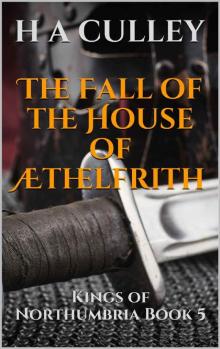 The Fall of the House of Æthelfrith
The Fall of the House of Æthelfrith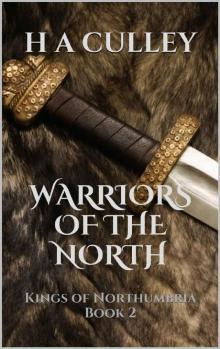 WARRIORS OF THE NORTH: Kings of Northumbria Book 2
WARRIORS OF THE NORTH: Kings of Northumbria Book 2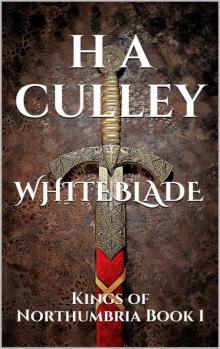 WHITEBLADE: Kings of Northumbria Book 1
WHITEBLADE: Kings of Northumbria Book 1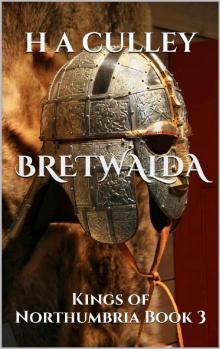 BRETWALDA
BRETWALDA